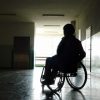Centering Equity: A Vision for Global Health in 2021

DEHRADUN, India/OXFORD, UK, Mar 24 (IPS) - 2020 will be remembered as the year that changed the world, as COVID-19 spared no country, no community, and no person. As the pandemic continues in 2021, there is recognition that some groups are impacted more than others, not just by the virus itself, but also by the socio-economic and access inequities exacerbated by global shutdowns. Globally, countries, and organisations are seeking to build back better and address inequities.
António Guterres, Secretary-General of the UN, highlighted that we have ignored inequality for too long, putting the poor at greater risk during the pandemic.
UK-based studies corroborate this: people in affluent areas are 50x less likely to die from COVID-19, while people of black ethnicity and disabled people are 4 and 3 times more likely to die from COVID 19, respectively.
A third of 18-24 year olds have lost their job--twice the rate of working age adults. The disproportionate impacts on women include reduced reproductive health rights; increased unpaid care responsibilities; more domestic violence; and a record decrease in women leaving the workforce. Together, these trends threaten global gains on equity and inclusion.
India exemplifies the challenges and inequities so many in low- and middle-income countries faced during the pandemic. India’s poor have been hit the hardest in everything from the disease itself to the economic and social impacts of national lockdowns.
Scores of migrants walked hundreds of kilometres to their villages, exemplifying how people in the informal sector lost their jobs, livelihood, and homes. Public and private healthcare facilities tried to support COVID-19 patients, but reports question the accessibility and equity of the services for the poor. Economically, experts expect that millions of people in India will become impoverished due to the pandemic.
For global health more broadly, the pandemic has threatened to drive back progress made in recent decades and highlighted how we neglected calls for health systems strengthening in recent years. Yet, we see opportunities and calls to ‘build back better’, the global health community must first ask itself "What is wrong with Global Health?" so we avoid these systemic issues and build a more inclusive world.
The reality is that many things went wrong within global health prior to 2020. To date, we have seen certain groups forgotten in the global health space. For instance, only 0.5% of international development funding goes towards disability-inclusive programs. Even less of this goes directly to global health, despite the fact that people with disabilities make up 15% of the world’s population. COVID-19 has amplified the omission of disabled people.
For example, India’s COVID-19 tracker, Aarogya Setu App, public health guidance, and testing sites have remained inaccessible for disabled people. In lockdowns, disabled people also had difficulties accessing essential food, information, medicines, and supplies.
We suggest three ways to address access inequalities in Global Health:
- Underrepresented and marginalized groups need better, authentic representation. Global health organizations must continually ask themselves who is not represented or reached in their programs, and actively take steps to fix it. Involving advocates and activists from the very beginning will include the needs of at-risk populations and enhancing acceptance, inclusion and belonging.
- Global health needs better, timely, factual, and accessible communication. Creating accessible and acceptable communication strategies and messages that are deployed to reach even the most remote areas is key to ensuring global health connects everyone.
- Act in solidarity. Governments, civil society, and international organisations need to come together to distribute resources proportionately to need. Distributive justice can ensure greater security for all--whether that is for health, income, employment--which ultimately impacts our collective ability to weather catastrophes, like pandemics.
COVID-19 has been a pivotal moment and offers a unique opportunity to build back a better, more equitable, healthier world. However, without an explicit focus on inequity, we risk leaving out those who global health has forgotten, despite our moral obligation and duty to protect.
In 2020, we showed that anything is possible with political will, dedicated funding, and global action. In 2021, we need a paradigm shift in our approach to global health so that it captures those who most need it. We must apply what we have learned from collective action for COVID-19 to the greatest challenges facing our society: inequity. By addressing this, we ensure that global health is truly accessible to all.
Shubha Nagesh is a medical doctor and a global health consultant based in Dehradun, India. She strives to make Childhood Disability a global health priority.
Sara Rotenberg is a Rhodes Scholar and DPhil Student in the Nuffield Department of Primary Care Health Sciences at the University of Oxford.
© Inter Press Service (2021) — All Rights Reserved. Original source: Inter Press Service
 Global Issues
Global Issues